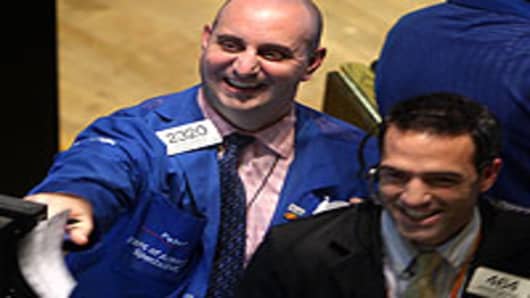"The measured approach he's taking is a healthy one," said Mike O'Rourke, chief market strategist at BTIG in New York. "It's not the type that's going to supercharge the markets and help equity returns in the near term. But it will help build the foundation for the future and a steady recovery going forward."
Indeed, Friday's stocks rally could hardly be described as "supercharged" after the Standard & Poor's 500surrendered 4.5 percent for the month, triggered largely by the uncertainty after the Aug. 10 FOMC meeting.
But it was enough to stoke at least some enthusiasm among equity investors. At the same time, investors poured out of the bonds market, sending the 30-year long bond down more than 3 points in price.
"He gave the market something on both ends," said Michael Pento, senior economist at Euro Pacific Capital in New York and a frequent Fed critic. "One side was the economy isn't as bad as everybody's saying, and even if it is they'll do whatever they can to stimulate growth and depreciate the value of the currency and create inflation."
Pento said the economy is in fact worse than Bernanke and other Fed officials, such as St. Louis Preisdent James Bullard, claim it to be, but the market is willing to follow the central bank at this point.
"What they're going to get down the road is intractable inflation," he said. "What they've compelled investors to do is get out of fixed income as much as possible, get out of the money markets and put their money in stocks. They want investors to buy assets, to purchase homes and invest in the stock market. Holding money in fixed income in short-term Treasurys is not what they want you to do."
Market pros wrestled somewhat over what exactly the Fed would do should the economy worsen from the slightly better-than-expected 1.6 percent gross domestic product growthindicated in Friday's data.
The consensus remains that the main weapon the Fed would use is buying Treasurys to drive down lending rates, while cutting the interest paid to banks on deposits and tweaking the "unsually low for an extended period of time" interest rate language remain lesser possibilities.




